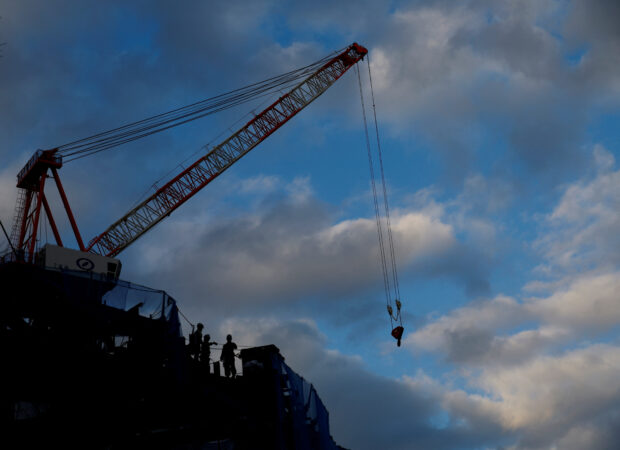Japan December core machinery orders rise, recovery seen limited

Workers are seen at a construction site at a business district in Tokyo, Japan Jan 23, 2024. REUTERS/Kim Kyung-Hoon/File Photo
TOKYO —Japan’s core machinery orders in December rose slightly more than expected but remained down year-on-year, government data showed on Monday, although further gains are expected to be capped by global and domestic headwinds.
Core orders, a highly volatile data series regarded as a leading indicator of capital spending in the coming six to nine months, went up 2.7 percent in December from the previous month, Cabinet Office data showed.
That compared with the median forecast for a 2.5-percent rise by economists in a Reuters poll.
On a year-on-year basis, core orders, which exclude volatile numbers from shipping and electric utilities, declined 0.7 percent, smaller than the forecast 1.4 percent fall.
Orders up
By sector, orders from manufacturers increased 10.1 percent in December from the previous month, lifted by chemicals industries and information and communication machinery. That followed a 7.8 percent decline in November.
Service-sector orders fell 2.2 percent after slipping 0.4 percent in the prior month, weighed down by a decline in orders from mail and transport as well as telecommunication industries.
For the January to March period, core machinery orders are expected to rise 4.6 percent quarter-on-quarter thanks to an increase in demand for motors and electronic and telecommunications equipment in unspecified industries, a Cabinet Office official said.
Electronic, telecom equipment
Still, the government retained its view that machinery orders had “stalled” for 14 straight months, pointing to a 1 percent drop in core machinery orders for October-December period.
While overall appetite for capital investment is still strong, there are signs of weakening in the non-manufacturing sector as moves to normalize economic activity run their course, said Masato Koike, economist at Sompo Institute Plus.
“The pace of recovery will be restrained given the limited recovery in domestic demand and the lack of momentum in the overseas economy,” Koike said.